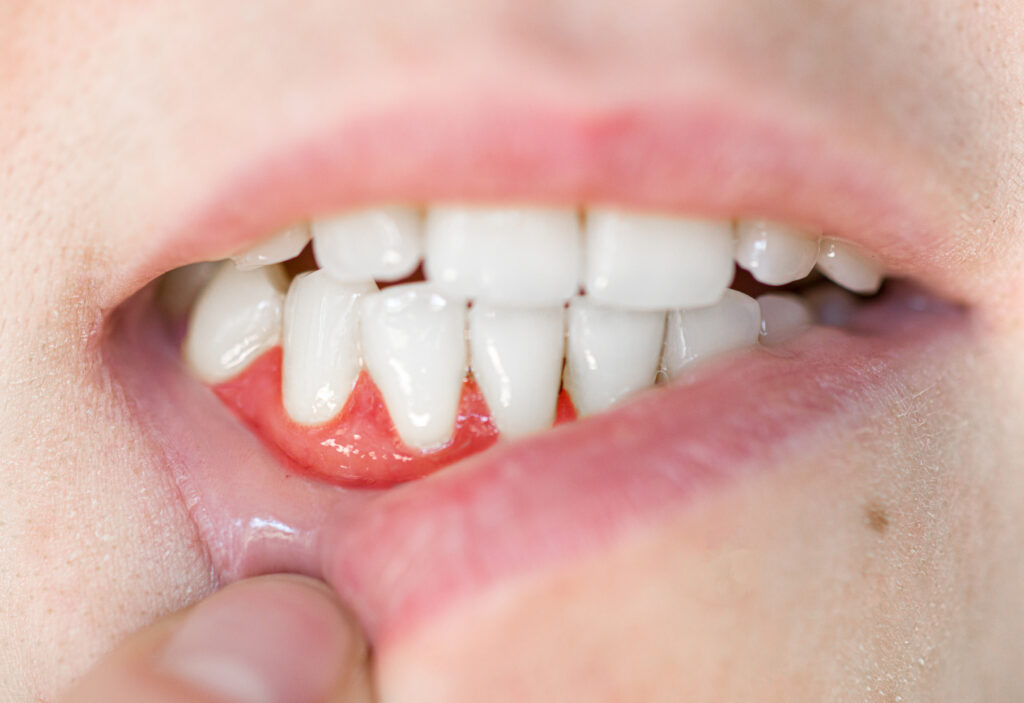
What is Periodontitis?
Periodontitis is the more advanced form of gum disease that occurs after gingivitis. It occurs when the soft gum tissue around your teeth becomes infected. Your gums can become red and inflamed, and pockets develop between the teeth and gums as tartar and plaque build up.
Signs of Periodontitis
Receding gums are symptoms of periodontitis, as are black spaces between your teeth where gums shift away from them.
Tender gums or gums that bleed easily can indicate gum infection. You might also notice that it hurts to chew. Similarly, periodontitis can cause bad breath that resists treatment.
If left untreated, periodontitis can lead to bone loss that eventually causes you to lose teeth. In extreme cases, bacteria that cause infection can enter your bloodstream.
How to Prevent Periodontitis
Practice Good Dental Hygiene
Proper dental hygiene is vital to preventing periodontitis. You should brush twice every day with fluoride toothpaste and floss regularly to remove any food particles and prevent buildup.
Routine dental visits are also important to avoid this condition. Even if you have developed periodontitis and noticed the inflammation it causes, these tips can help prevent the condition from worsening.
Quit Smoking or Using Tobacco Products
Smoking, vaping, and chewing tobacco can also contribute to periodontitis. Quitting the habit can have numerous benefits to your entire oral health, including a lower risk of gum disease, tooth decay, and oral cancer.
Eat a Well-Balanced Diet
Fibrous foods help keep your teeth and gums strong, and probiotics support a healthy mouth. Vitamin C and omega-3 fatty acids can also contribute to better gum health and a lower risk of disease.
Work With Your Dentist
Unfortunately, some medications can contribute to periodontitis. Illnesses such as HIV/AIDS, diabetes, rheumatoid arthritis, and Crohn’s disease can also put you at risk for this condition, which makes a proper dental routine especially important.
Be sure to let your dentist know about your medical history so they can provide the most comprehensive care. With their help, you can work to mitigate the risks that may naturally arise from underlying conditions or medications you need to stay healthy.
Prioritize Your Dental Health
We’re happy to provide you with all your peritonitis and dental needs at McDowell Dental Group.Dr. Ashley McDowell, D.M.D., is a respected dentist in Rydal, PA, serving patients throughout the greater Philadelphia area.
Trained at the famous Las Vegas Institute of Advanced Dental Studies (LVI), she is an expert in general and cosmetic dentistry, neuromuscular dentistry, and sleep dentistry, as well as a certified Invisalign® provider.
You can feel confident knowing your smile is in good hands at our practice. Please call us at 215-885-0555 to schedule an appointment or send us a message online.


